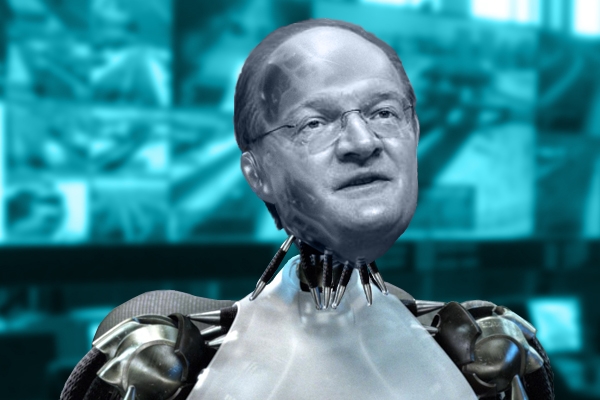Can science and technology become the backbone of the British economy? David Willetts thinks so — he’s set out eight great technologies he believes will ‘play a vital role in delivering economic growth’. The Universities and Science minister explained today why British scientific research needs beefing up, albeit in a very free market manner:
‘The challenge is to reap an economic benefit from this capability without clunky interventions that risk undermining the open curiosity-driven research which is what makes us special in the first place. For too long the UK has been hampered by a ‘valley of death’ between scientific discovery and commercial application. If we tackle this, then we can become the best place in the world to do science’
But like an old Kraftwerk album, Willetts’ vision sounds bizarrely futuristic and nostalgic at the same time. His ideas include utilising big data (which I’ve written a few sceptical posts on before), satellites (for data transmission), robots (with British algorithms to speed up laborious tasks), modern genetics (home turf to the host nation of Watson and Crick), regenerative medicine (a $5 billion industry by 2014), agricultural technologies (food production is now our biggest manufacturing sector), advanced materials (again, the nation of Wedgwood and Pilkington can lead the way) and energy storage (we’ve lost our way to international competition on this one).
Britain has tried this strategy before, though Willetts specifically discouraged comparisons with the 1970s — when the government picked specific winners. The minister appears keener to take inspiration from the 1980s, when entrepreneurship and innovation were rampant. During this period, Britain had a significant role in the early personal computer industry. Firms such as Amstrad, Acorn and ARM all played a key economic role in building new markets.
But since then, British firms have struggled to keep up with the huge R&D budgets of American firms. Now, scientific developments are moving global with breakthroughs today taking advantage of pan-national knowledge. Yesterday’s announcement that data can now be stored in DNA was a collaborative American-European effort.
It’s pleasing to see Willetts looking for growth with an entirely new focus. But he should remember Britain has tried to be a driver of innovation in the past. Sadly, the returns were not as long-term and significant as the government would have hoped.






Comments